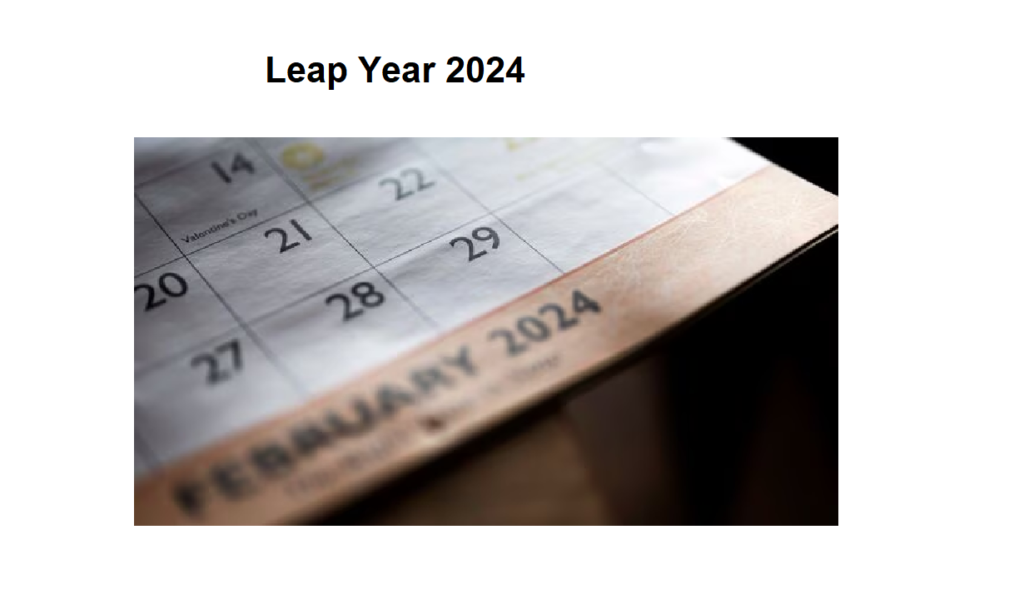Leap Day 2024: Celebrating the Extra Day and Its Fascinating History
It’s 2024, and guess what? We get an extra day this year! February 29th marks the arrival of Leap Day, a unique occasion that only occurs every four years. This special day holds historical significance, cultural quirks, and even fun traditions, making it a fascinating topic to explore.
Why Do We Have Leap Years?
Before diving into the festivities, let’s understand why Leap Day exists. The Earth completes one orbit around the Sun in approximately 365.2422 days. A standard year has 365 days, but this slight difference in time accumulates over four years. Without leap years, our calendar would slowly become misaligned with the seasons over time.
Leap years correct this discrepancy by adding an extra day, keeping our calendar aligned with the Earth’s revolution around the Sun. This ensures that the seasons (spring, summer, autumn, winter) occur roughly at the same time each year, which is crucial for agricultural planning and other human activities.
A Short History of Leap Day
The idea of Leap Day traces its origins to ancient Egyptian civilization.Top of Form Around 2,000 BC, they observed that the annual flooding of the Nile River, crucial for their agriculture, didn’t always fall on the same day. To maintain their calendar’s accuracy, they added an extra day every four years.
The Roman Republic adopted a similar system in 45 BC, with Julius Caesar introducing the Julian calendar. However, this system added an extra day every three years, leading to inaccuracies. In 1582, Pope Gregory XIII introduced the Gregorian calendar, which remains the most widely used calendar today. This reformed system added an extra day every four years, with exceptions for certain years divisible by 100 but not by 400.
Fun Facts and Traditions Around Leap Day
Being an extra day, Leap Day naturally comes with its own set of interesting facts and traditions:
- Leaplings: People born on February 29th are called “leaplings” and celebrate their birthdays every four years. This unique chance makes them part of an exclusive club – the odds of being a leaper are about 1 in 1,461!
- Leap Day proposals: According to tradition, on Leap Day, women are “allowed” to propose to men. This tradition likely originated in Ireland and Scotland in the 5th century, though its historical accuracy is debated.
- Leap Day celebrations: Many countries hold special events and celebrations on Leap Day. In Finland, Leap Day is considered a “women’s day” where women traditionally buy gifts for their male partners. In Greece, it’s considered bad luck to get married on Leap Day.
- Leap Day in literature: Leap Day has found its way into various works of fiction, including “The Time Machine” by H.G. Wells and “The Odd Couple” by Neil Simon.
Beyond Celebrations: The Importance of Leap Day
While Leap Day is often associated with fun and quirky traditions, it serves a vital purpose. It ensures the proper alignment of our calendar with the Earth’s natural cycle, which is crucial for various aspects of life, including:
- Agriculture: Accurate calendars are essential for farmers to plan planting and harvesting seasons based on the changing weather patterns and sunlight availability.
- Climate science: Long-term climate data analysis relies on accurate calendars to track trends and patterns over time.
- Religious holidays: Many religions use the calendar to determine the dates of important holidays. Leap Day ensures these holidays fall on the correct days in relation to the seasons.
- Timekeeping and navigation: Leap Day plays a role in maintaining the accuracy of timekeeping systems and navigation tools that rely on astronomical calculations.
Looking Forward: Leap Day in the Future
Leap Day will continue to be a crucial part of our calendar system in the foreseeable future. As long as the Earth takes slightly more than 365 days to orbit the Sun, we will need to adjust our calendar every four years to maintain its accuracy.
While the traditions surrounding Leap Day may evolve, its significance in ensuring a synchronized calendar system for various human activities remains undeniable. So, the next time February 29th rolls around, remember to celebrate the extra day and appreciate its role in keeping our world in time!

